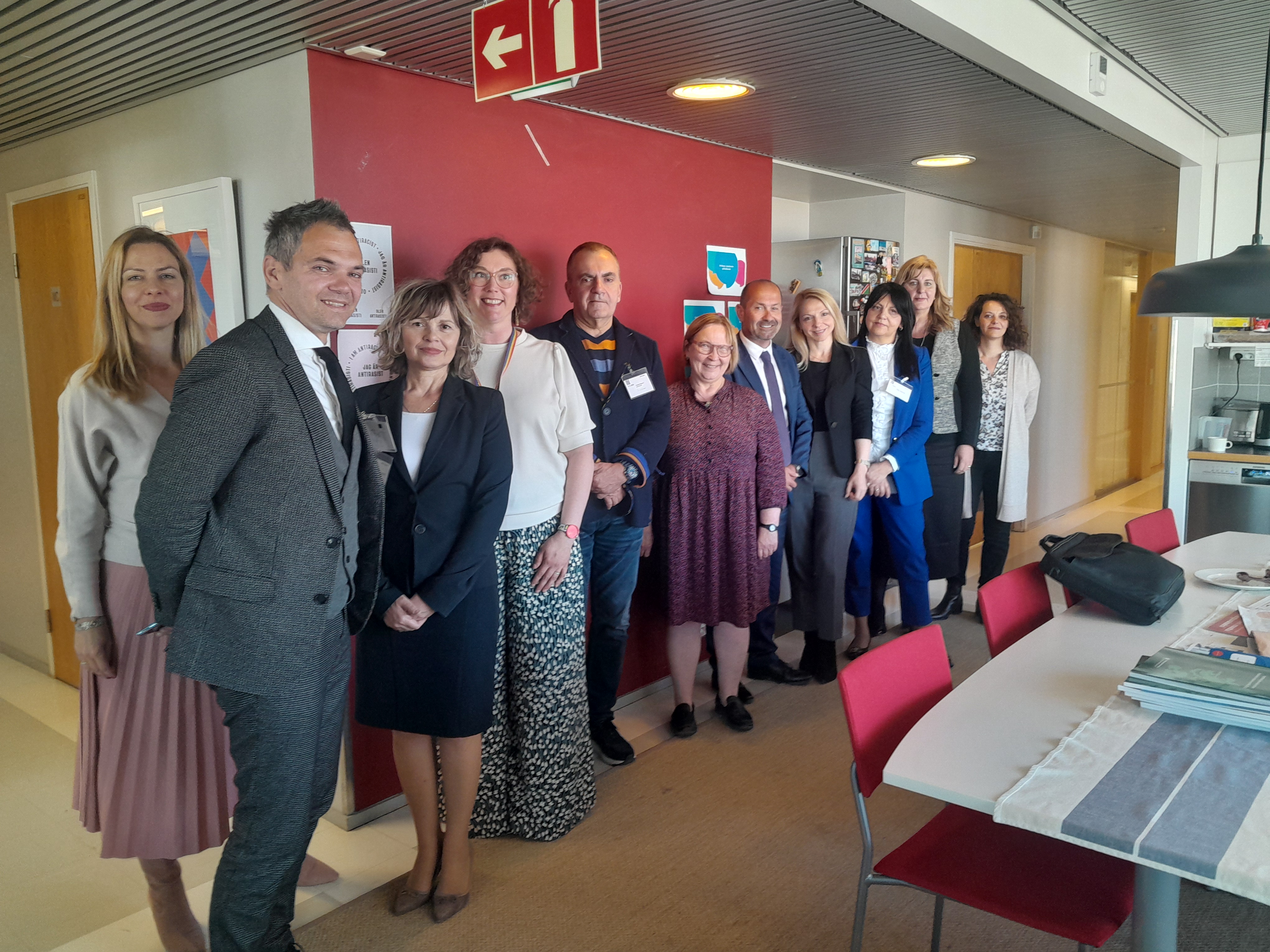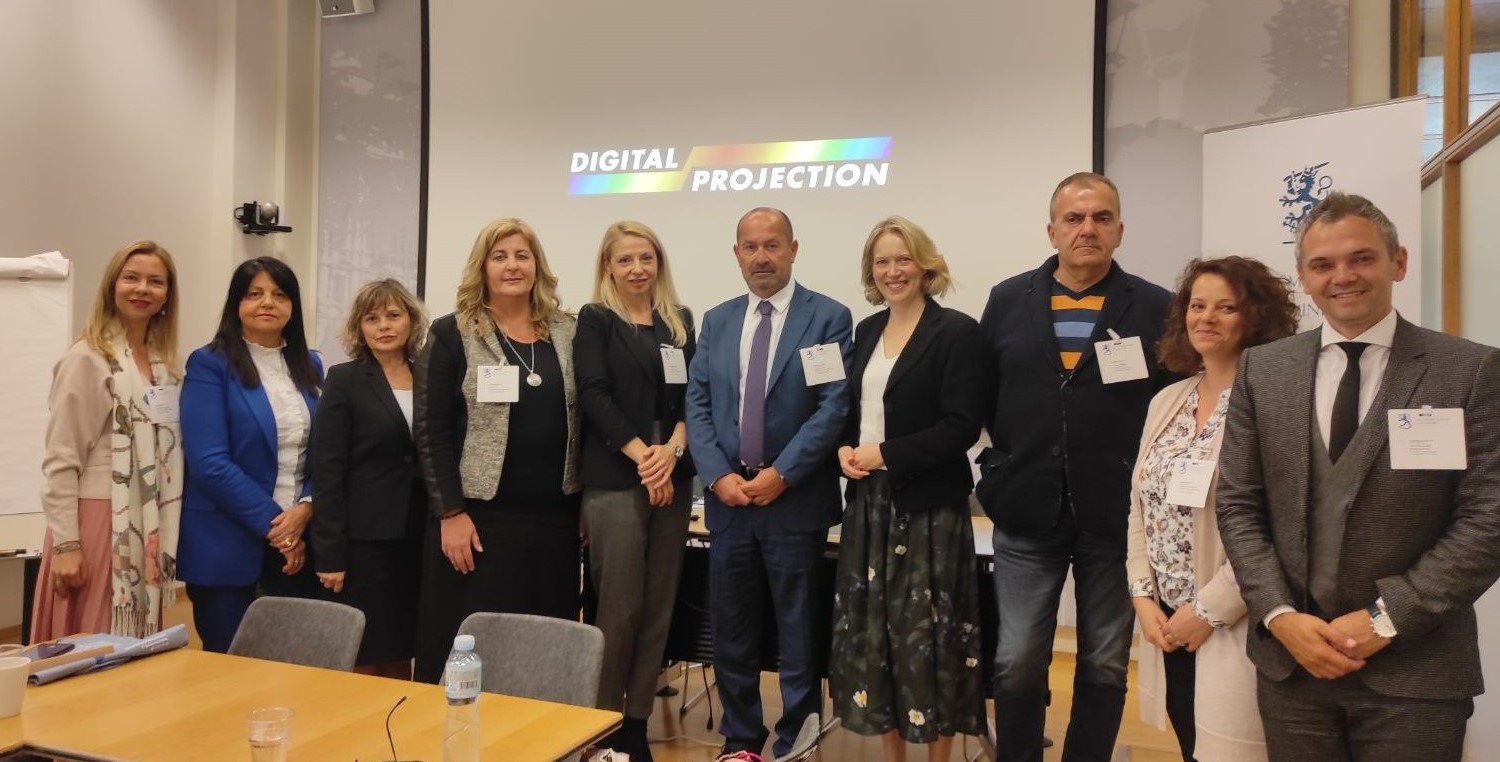A Serbian delegation composed of representatives of the Ministry of the Interior, Ombudsperson’s Office and Labour Inspectorate met with counterparts in Helsinki, Finland, on 21 and 22 May 2024, during a study visit organised by the joint European Union and Council of Europe action “Strengthening anti-trafficking action in Serbia”.
The participants exchanged on the respective anti-trafficking systems and action plans, and the roles of the Anti-trafficking Coordinators and National Rapporteurs on Trafficking in Human Beings. The functioning and efficiency of the monitoring and reporting mechanisms in both countries were also addressed. Anni Valovirta, Senior Specialist at the Non-Discrimination Ombudsperson Office, highlighted the importance of human rights based, coherent, coordinated and effective efforts of all actors in combating human trafficking.
High importance was given to the detection and support to victims of human trafficking. The stakeholders discussed the domestic frameworks for identifying and referring victims of trafficking (“National Referral Mechanisms”) and ensuring they receive the appropriate assistance services.
Representatives of the Finnish Labour Inspectorate, Police, National Assistance System and specialized civil society organisations took part in the meetings and shared their knowledge of the trends in human trafficking, in particular labour trafficking, in Finland, and the implementation of prevention measures and newly developed methods (so-called “from ping-pong to joint action”).
The action “Strengthening anti-trafficking action in Serbia” aims at strengthening prevention of trafficking in human beings, identification, and protection of victims of trafficking, prosecution and conviction of traffickers, and access to remedies for victims of trafficking. It is implemented within the joint programme of the European Union and the Council of Europe “Horizontal Facility for the Western Balkans and Türkiye”, running from 2023 - 2026.






